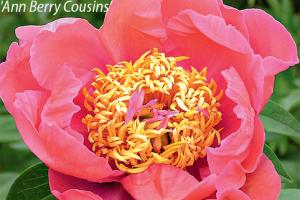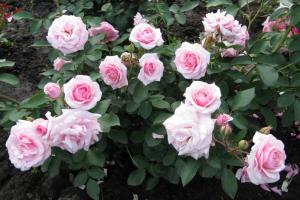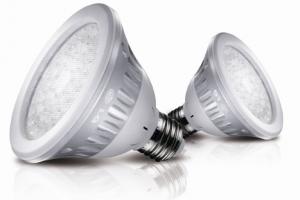In this article you will learn:
According to the ancient Chinese teachings of Feng Shui, a person should live in harmony with the world. In order for internal energy to interact beneficially with the energy of things, you need to be able to properly plan space.
In addition to arranging furniture and interior items, followers of geomancy recommend taking a responsible approach to choosing places to place living plants. According to Feng Shui, flowers for home well-being should be purchased with love, placed in suitable rooms and provided with regular care.
What do flowers symbolize in the life of an ordinary person?
People attach great importance to indoor flowers. Plants fill the room with oxygen and living energy, making the house cozy and attractive.
Housewives usually select flowers so that they match the color scheme of the interior and have a pleasant smell. Also, flower lovers often pay attention to the influence of indoor plants.
So, according to some people, the money tree brings wealth, geranium protects against diseases, and blooming cyclamen helps get rid of nightmares. The red rose is considered a symbol of love, and the cactus signifies patience and constancy.
However, there are different interpretations of plants for the home in the world. They differ depending on the cultural and religious beliefs of a person, his place of residence and his nationality.
Feng Shui interpretation of indoor plants
The teaching of Feng Shui states that in a living room one should place those plants that symbolize rising to the heights, that is, growing towards the Sun. To grow at home, you need to select flowers with round leaves. Representatives of flora that need a lot of water are recommended to be planted in red pots.
We have selected for you interesting articles:
According to Feng Shui, indoor plants have different effects:
- geranium helps get rid of stress, reconciles people when conflict arises;
- violet calms the child and adult psyche, protects against diseases;
- the myrtle tree helps to get rid of troubles and strengthen the marriage;
- chrysanthemums reconcile two warring sides;
- chlorophytum reduces the number of harmful microbes, converts negative energy into positive;
- ficus helps to cope with problems, provokes decision-making;
- aloe strengthens family relationships;
- the lemon tree develops curiosity and increases the desire to acquire new knowledge;
- royal begonia attracts prosperity into the house, cleanses the air of toxic substances;
- Azalea maintains vigor, helps restore strength, and restore inspiration. Helps those who experience constant fatigue syndrome!
According to Chinese teaching, there are several elements, and each of them has its own flowers.
So, the elements of Earth belong to yellow plants: aster, hydrangea, tea rose. The elements of Fire correspond to beautiful bright flowers: cactus, succulents, geranium, hibiscus. The element Water is characterized by moisture-loving representatives of the flora: iris, violet, dracaena.
Male and female flowers
According to Feng Shui, indoor flowers are divided into female (Yin) and male (Yang).

The first includes begonia, violet, crassula (money tree), cyclamen, spathiphyllum. To create positive energy, it is recommended to place them in the kitchen or children's room.
Among male plants it is noted dracaena, lemon, sansevieria, chlorophyllum, asparagus, lemon and other citrus plants. Flowers are placed in the living room or study, as well as in rooms that face the southeast, south or southwest side of the house.
To create balance and harmony for home improvement, it is necessary to acquire Yin and Yang.
What types of flowers can cause great harm to residents?
According to Feng Shui, flowers for the home should not have pointed or drooping leaves, as they negatively affect health, financial profit, career growth and relationships between family members.
According to Chinese teaching, there are “vampire plants,” which include prickly representatives of the flora (cacti), monstera, fern, poinsettia, dieffenbachia, cyperus. To neutralize the dangerous energy of the listed plants, it is recommended to place them in an office space, near a work computer or on a windowsill behind a curtain.

Dried and wilted flowers in the house, according to Feng Shui, take away vital energy Qi and are breeding grounds for pathogenic bacteria! If a dying flower appears in the house, the shoot must be cut off for rooting, and the rest of the plant must be disposed of.
Plants donated by unpleasant people or enemies should not be brought into your home. Their energy negatively affects not only the atmosphere, but also the well-being of people.
What about artificial flowers in the apartment
According to Feng Shui, absolutely all flowers and indoor plants are a positive symbol. Artificial flowers have their advantages over potted plants because they can be placed in places where real flowers cannot exist. For example, near fire, in rooms with high humidity, places without sunlight, etc. And the most interesting thing is that, unlike flowers in pots, artificial flowers can even be placed in the bedroom.
When choosing flowers, you need to follow the same rules as when choosing plants in pots! Tall plants will bring growth in all areas of life, short plants will bring harmony and peace. Holly leaves symbolize the masculine principle, round leaves symbolize the feminine principle.
When choosing artificial flowers, pay attention to their maximum similarity to real flowers. The more detailed the similarity, the more good energy will enter your home!
Is it possible to place fresh cut flowers?
Bouquets of cut flowers also bring positive energy into the house. Peonies, roses, orchids, chrysanthemums, poppies, and lilacs are especially good at this. The color of plants and their location play a very important role. Such flowers can be placed in the bedroom, since, unlike flowers in pots, they do not undergo any putrefactive processes (which occur in the ground). But do not forget that cut flowers fade over time, and fading, rotten, dried plants only eat up the positive energy in the house! It is important to constantly change the water in the vases and regularly pick off spoiled leaves.
As soon as the flowers begin to fade, you should replace the bouquet with a new one. Don't delay this!
Rules for arranging plants indoors according to Feng Shui
It is better to use different types of flowers to decorate your home interior. Then they will generate energy and influence the well-being of residents.
So, chlorophytum should be placed in the kitchen, which rids the house of toxic substances and enhances Yin energy. Other flowers that can be placed in the kitchen are begonia, geranium, and bamboo. The latter, according to Taoist practice, passes negative impulses through itself.
Flowers for the bedroom According to Feng Shui, it should not be placed near the bed. Some plants do not produce oxygen at night, and this can negatively affect the well-being of residents.
Optimal flower for children's room considered a Chinese rose. It purifies the air, improves memory and has a positive effect on the child’s psychological state.
Important! Children are negatively affected by cacti, spurge, yucca, and nightshade.
Negative energy in a living room accumulates in corners and darkened places. Therefore, it is recommended to install pots with flowers there that eliminate negativity.
The teaching of feng shui (feng shui, feng shui, feng shui) originated in ancient China, but the truths of ancient Chinese philosophy about the internal and external harmony of human existence are still alive. Translated from Chinese, “Feng Shui” means “wind and water.” “Fen” is an energy stream that sweeps like the wind, “shui” is streams of water that live in the depths of the earth and feed it.
The meaning of Feng Shui philosophy is to enhance the positive energy of a room, with the help of which a person could become happy, healthy and successful, and his life – harmonious and prosperous. The functions of home flowers are not just to decorate the interior. According to Feng Shui, indoor plants activate the positive energy of the premises, with the help of which they bring all aspects of our lives into a harmonious state.
Harmony of masculine and feminine principles
When starting to landscaping an apartment according to Feng Shui, you should take into account the size, shape of plants, and the color of their flowers - the degree to which they express the masculine (Yang) or feminine (Yin) principles depends on this. The sharp shape of the leaves indicates the predominance of the masculine principle of Yang in them, accelerating the movement of Qi energy.
Round leaves indicate the predominance of the feminine Yin principle in the plant. The predominance of masculine or feminine principles is also expressed in the way the flower grows and branches: the stems of plants with Yin creep or hang down, with Yang they point upward.
The list of indoor plants according to Feng Shui, which have powerful positive energy, is very extensive. Depending on their properties, house plants, arranged according to the Feng Shui principle, will help to form the desired qualities of character, achieve harmony in personal or business relationships, and even promote the flow of creative energy in creativity and business.
Personality harmony
 In order to achieve success in the field of personal growth, populate your home with geraniums, begonias and azaleas. Cyclamen, Uzumbara violet, fern, ivy, etc. also have a harmonious effect on character development. Will improve health and help in creativity: roycissus, monstera, cactus, chrysanthemum, croton, dracaena, lemon, sansevieria, orchid, etc.
In order to achieve success in the field of personal growth, populate your home with geraniums, begonias and azaleas. Cyclamen, Uzumbara violet, fern, ivy, etc. also have a harmonious effect on character development. Will improve health and help in creativity: roycissus, monstera, cactus, chrysanthemum, croton, dracaena, lemon, sansevieria, orchid, etc.
Geranium weakens the emotions of anger and aggression, replacing them with a developed sense of humor.
Begonia will give order to communication between interlocutors, in addition, it will help slower individuals develop quick thinking.
Azalea, acting on a subconscious level, will give determination to insecure people and help overcome fear and uncertainty before responsible events.
Cyclamen fosters independence of thinking and action in those who are easily influenced by others.
The effect on human character traits is curious Uzumbara violets depending on their color: purple will help you have a philosophical attitude towards life’s troubles, as well as achieve mutual understanding in communication. Blue violets reveal a person’s creative abilities, while white ones balance excessive emotionality.
Fern has a calming effect on maximalists, developing a sense of proportion and tact, helping them distinguish momentary whims from true desires.
Ivy relieves people from excessive resentment and envy.
Tradescantia, despite superstitious ideas, like ivy, it will get rid of envy, and will also teach you to relate more simply to life’s difficulties.
Action Chinese rose, or hibiscus, will have a positive effect on a person’s creative energy, which this beautiful flower miraculously transforms from the energy of laziness. Its neutralizing influence affects human aggression, dissatisfaction, the desire for power; in addition, the influence of the “flower of love” will give women independence, and gentlemen – masculinity.
Monstera good for conservative individuals who help organize their thoughts. It will also support health and develop intellectual abilities.
Roycissus will soften the actions of people who are too inclined to cleanliness.
Has magical properties chrysanthemum: its action will establish a healthy balance of mind and feelings, giving peace to the atmosphere at home, and mutual tenderness and freedom from doubt to partners. Chrysanthemum balances the influence of the feminine and masculine principles of human character: ladies become more feminine, men become more masculine.
Croton, perhaps the only one among the indoor plants according to Feng Shui, which will get rid of excessive selfishness, forcing you to listen to other people’s opinions. The plant has a calming effect on modern teenagers, overloaded with creative ideas, and helps them gain confidence, negating the bad influence of the street.
 Cactus neutralizes the anger and temper of those whose nature is unpredictable. Any of its varieties will help cope with resentment and vindictiveness, stimulating logical thinking and eliminating the tendency to worry.
Cactus neutralizes the anger and temper of those whose nature is unpredictable. Any of its varieties will help cope with resentment and vindictiveness, stimulating logical thinking and eliminating the tendency to worry.
Dracaena will have a positive impact on pessimists, freeing them from self-criticism and gloomy views of reality.
Lemons And sansevierias enhance children's cognitive drive, developing their curiosity. The lemon tree develops the child's activity and independence in actions. Sansevieria will make the baby more polite, neutralizing rudeness.
Orchid eliminates depressive states, stimulating the ability to creatively search for spiritual goals. Dark red orchids will relieve you of laziness and apathy.
Cyperus will help you avoid cunning, deception, including empty chatter.
Harmony of relationships
When placing indoor plants in the house according to Feng Shui, one should not forget about the feathery ones. palm trees, which contribute to the establishment of a friendly family atmosphere. In addition, they serve as a good stimulator of human self-discipline.
Help to create a warmer atmosphere of mutual understanding of family relationships agaves, balsam and any variety.
Zantedeschia will preserve the family hearth, relieving people of the fear of expressing sincere feelings.
Harmony of business relations
In an office environment it would be appropriate to place codiaum, which promotes the establishment of consensus in business relationships.
AND yucca would be appropriate in the manager’s office: they have a positive effect on the productivity of working moments. Ficus stimulates concentration and enthusiasm. Yucca promotes self-confidence in difficult times, as well as trust between business partners.
It is an excellent stimulator for innovation, revealing new business qualities in a person. Maranta, possessing the same qualities, prevents mutual moral suppression of people, helps a person to succeed in the professional sphere.
Inna Mikhailovskaya specifically for the site All about flowers
2010 - 2013, . All rights reserved. The use of site materials in any form is prohibited. Copying articles with a link to the source is only with the written permission of the site administration.
According to the Feng Shui method, you can fill your living space with positive Qi energy and have a beneficial effect on destiny with the help of flower symbols. After all, flowers play a very important role in Feng Shui. However, it is worth noting that we will talk specifically about fresh or freshly cut flowers, since dried flowers, according to Feng Shui, are extremely undesirable in the interior, since they carry a dead energy field.
- When choosing indoor flowers, you should take into account the size and shape of the plant, and for flowering plants, also the color.
- According to Feng Shui, you should keep flowers in your house that grow and stretch upward. It is believed that flowers stretching upward activate positive energy, while plants with drooping leaves and flowers, on the contrary, bring energy down to earth. Moreover, give preference to flowers with rounded leaves.
- According to the energy released, Feng Shui divides all indoor flowers into plants with male energy - Yang and female - Yin. The most widely known plants with masculine energy include: dracaena, chlorophytum, asparagus, sansevieria, lemon and other types of citrus fruits. Plants with sharp leaves are more typical of Yang energy flowers, they accelerate the movement of energy and grow straight up. Plants with feminine energy include: violet, crassula (money tree), cyclamen, begonia. Branching or creeping plants with rounded leaves reflect Yin qualities to a greater extent. To create a correct and favorable Feng Shui microclimate and energy balance in the home, it is necessary to have both Yang and Yin plants in the house.
- It should be remembered that in Feng Shui, any dried plants are energy vampires, and it is not recommended to keep them indoors, as they will absorb your energy.
- Fruiting and flowering plants release more energy than decorative foliage plants, and large plants release more energy than small ones.
- Plants with lush, soft foliage emit more positive energy than plants with sharp, hard, spine-covered leaves.
- Keep only plants that you like in your home, because any flower is a highly sensitive plant and will not grow well in an environment of antipathy.
- Take proper care of your flowers if you want them to grow well, make you happy and fill your home with positive energy.
Indoor flowers and plants according to Feng Shui
What colors does Feng Shui prefer? For example, a money tree helps increase material wealth. Myrtle will strengthen family relationships. An indoor rose will help you find new love. Lemon or Orange tree drive away illnesses, help those recovering, in addition, they are wonderful for children's rooms, where new, fresh energy is important. Geranium gives strength and helps new beginnings.
According to the teachings of Feng Shui, positive energy is inherent in the following indoor plants: amaryllis, alpine violet, bougainvillea, hippeastrum, flowering begonias, crassula tree, camellia, Chinese rose, cyclamen, cissus, potted chrysanthemum.
Plants with heavy energy include: cacti, yucca, sansevieria (pike tail), neoregelia, echmea. However, they can also be grown at home and successfully block the harmful Sha energy.
The most common indoor flowers
Ficus. It has the ability to neutralize aggression and negative energy well. Creates a favorable atmosphere in the house. However, it cannot be placed in the marriage sector, since its presence in this place can worsen the relationship between spouses.
Pelargonium (geranium). Geranium is a plant with strong energy. Indoor geranium blooms profusely and luxuriantly, fueled directly by negative energy. It perfectly protects everyone living in the house. After sitting near the plant for a few minutes, you can feel energized and rested. You need to know that geranium releases essential oils, purifies the air, improves metabolism, reduces blood pressure and calms the nervous system. It is not recommended to place the plant near the bed, as inhaling essential oils for a long time can cause headaches and sometimes allergies.
Myrtle tree. This amazing plant is your assistant in creating a happy and strong family. It brings love and prosperity to your home, and a flowering myrtle tree in the house will create favorable energy. If you have hit a cooling streak in your family relationships, then the myrtle tree will help save your marriage and overcome adversity.
Cactus. Refers to the symbols of prosperity, fulfillment and wealth, despite its heavy energy. According to Feng Shui, the cactus is a symbol of fulfillment. This flower must be placed in the wealth zone. These plants are associated with the pantry because they are extremely water efficient. Cacti also neutralize rage and anger. They are especially indicated for hot-tempered people. This amazing plant helps to introduce elements of logic into emotions and helps not to concentrate on experiences.
Poinsettia and arrowroot. These indoor plants are good at stimulating the process of searching for something new. Often people who have lost the meaning of life find it again. Poinsettia helps to identify new qualities in yourself and decide on your profession, and promotes communication.
Money tree (crassula) has long been considered a symbol of prosperity, well-being and wealth. The presence of a money tree in the house brings an increase in material wealth. The Feng Shui symbol “money tree” is a good activator of the wealth zone in a house, apartment, store, or office. You will find more information about activating the Wealth Zone in the material “How to identify and activate the Wealth Zone according to Feng Shui in your home”
Feng Shui masters advise planting this tree with your own hands, placing a coin or several coins along with the soil in the pot. When the plant grows, you need to tie a red ribbon on its trunk and decorate it with coins. This feng shui symbol should be placed near a window facing southeast. If there is no window in the wealth area, then you can equip artificial lighting and place the money tree on a table, shelf or stand nearby.
Bamboo. The plant absorbs negative energy well. In the teachings of Feng Shui, it is believed that negative energy when passing through the cavities of bamboo shi changes to positive. It is recommended to keep the plant in a floor and wide vase in the corner of the room.
Lemon tree. Lemon is especially recommended to be placed near children, as this tree develops curiosity and increases the desire for knowledge. Lemon increases activity and independence.
Fresh cut flowers in feng shui
One of the most popular feng shui flowers that have a positive field is the peony, preferably pink. Peony as a symbol of feminine perfection and beauty attracts romance and love into the home. Cherry blossoms also have the same properties. A lotus flower, as well as a rose flower, can support the harmony of family relationships. If you intend to do something new in life, the energy of the freshness of flowers will help you cherry, peach or apple. Orchid- a symbol of perfection and fertility. This beautiful flower helps in achieving inner harmony. The lily is considered a symbol of wealth and abundance. Career growth symbolized by a flower narcissus. Chrysanthemum helps attract good luck, symbolizing Yang energy.
Where to arrange flowers according to Feng Shui
Feng Shui attaches great importance not only to the symbolism of flowers, but also to their correct location in the interior.
- According to the teaching, each side of the world has its own symbols. Therefore, flowers in the house must be arranged in accordance with which area of your life you want to have a positive impact on. In the center of the house there is a zone of health and well-being, in the south - fame, and in the north - career and work. The West is responsible for children and creativity, and the East is responsible for family. The zone of wealth is in the southeast, and in the southwest is the zone of love and romance. If you have a great desire to travel, work with the zone in the northwest, and while mastering new knowledge and gaining wisdom, place flower symbols in the northeast.
- When choosing a place for flowers in the house, you need to know that Yang plants should be kept in rooms characterized by a predominance of masculine energy - a study, a living room. Also, when the room is located in the southern, southeastern or southwestern sector, the presence of Yang plants is simply necessary. It is preferable to keep Yin plants in the kitchen and children's room. These plants should be small in size.
- It is not recommended to keep many indoor plants in the bedroom, and they should not be located too close to the bed.
- It is not recommended to place indoor flowers between 2 doors or in a straight line between a door and a window.
- Plants with thorns, hard leaves or needles should not be placed closer than 1 m from a working, sleeping or resting place.
According to Feng Shui, all flowers emit their own energy, unique to them. Knowledge of the energetic impact of plants on humans and the energy of space is extremely important for their correct selection. Fill your home with positive energy of harmony and beauty in accordance with the science of Ancient China, Feng Shui. We wish you good luck in mastering new knowledge!
Indoor flowers according to feng shui
Flowers are plants that constantly bring joy and aesthetic pleasure to a person. They can not only lift our mood, but also improve the energy of a person and the room in which they grow. Any home without the presence of indoor plants seems uninviting and cold to us. Flowers, like all plants, purify the air we breathe and fill our home with vital energy.
Green, the predominant color of plants and flowers, is one of the most natural and natural. Being in close proximity to flowers and plants, we receive a charge of positive energy and feel how our mood changes. Fatigue and irritability go away - we calm down. The plant pleases each of us with its greenery, blossoming flower buds, and we always look at the flowers with pleasure.
Flowers remind us of ourselves - they also appear in the world, grow, bloom, get sick and die. This is the life cycle in miniature.
Flowers in feng shui
According to the teachings of Feng Shui, flowers in the house carry a certain energy that has a direct effect on a person. The correct selection of plants and their location in your home can harmonize the energy of your home and the energy of a person.
Feng Shui meaning of flowers: general concepts

Feng Shui meaning of different types of flowers and plants
According to the teachings of Feng Shui, positive energy is inherent in the following indoor plants: amaryllis, alpine violet, bougainvillea, hippeastrum, geranium, flowering begonias, ficus, crassula tree, camellia, Chinese rose, cyclamen, arrowroot, orange and lemon trees, cissus, potted chrysanthemum.
Plants with heavy energy include: cacti, yucca, sansevieria (pike tail), neoregelia, echmea. However, they can also be grown at home and successfully block the harmful Sha energy.
All flowers emit their own, unique energy. Knowledge of the energetic impact of plants on humans and the energy of space is extremely important for their correct selection.
Ficus. It has the ability to neutralize aggression and negative energy well. Creates a favorable atmosphere in the house. However, it cannot be placed in the marriage sector, since its presence in this place can worsen the relationship between spouses.

Pelargonium (geranium). Indoor geranium is a plant with strong energy. Geranium blooms profusely and luxuriantly, fueled directly by negative energy. It perfectly protects everyone living in the house. After sitting near the plant for a few minutes, you can feel energized and rested. You need to know that geranium releases essential oils, purifies the air, improves metabolism, reduces blood pressure and calms the nervous system. It is not recommended to place the plant near the bed, as inhaling essential oils for a long time can cause headaches and sometimes allergies.

myrtle tree
Myrtle tree. This amazing plant is your assistant in creating a happy and strong family. It brings love and prosperity to your home, and a flowering myrtle tree in the house will create favorable energy. If you have hit a cooling streak in your family relationships, then the myrtle tree will help save your marriage and overcome adversity.
Cactus. Refers to fulfillment and wealth, despite its heavy energy . According to Feng Shui, the cactus is a symbol of fulfillment. This flower must be placed in the wealth zone. These plants are associated with the pantry because they are extremely water efficient. Cacti also neutralize rage and anger. They are especially indicated for hot-tempered people. This amazing plant helps to introduce elements of logic into emotions and helps not to concentrate on experiences.

Poinsettia
Poinsettia and arrowroot. These indoor plants are good at stimulating the process of searching for something new. Often people who have lost the meaning of life find it again. Poinsettia helps to identify new qualities in yourself and decide on your profession, and promotes communication.
Money tree (crassula) has long been considered a symbol of prosperity, well-being and wealth. The presence of a money tree in the house brings an increase in material wealth. The Feng Shui symbol “money tree” is a good activator of the wealth zone in a house, apartment, store, or office.

Feng Shui masters advise planting this tree with your own hands, placing a coin or several coins along with the soil in the pot. When the plant grows, you need to tie a red ribbon on its trunk and decorate it with coins. This feng shui symbol should be placed near a window facing southeast. If there is no window in the wealth area, then you can equip artificial lighting and place the money tree on a table, shelf or stand nearby.
Bamboo. The plant absorbs negative energy well. In the teachings of Feng Shui, it is believed that negative energy when passing through the cavities of bamboo shi changes to positive. It is recommended to keep the plant in a floor and wide vase in the corner of the room.

Lemon according to feng shui
There are many other indoor Feng Shui mascot flowers that have various magical effects on a person and the energy of the home.
It should also be remembered that, according to the teachings of Feng Shui, fruiting and flowering plants release more energy than decorative leafy plants, and large plants release more energy than small ones.
Only in this article can you find detailed information about colors and the teachings of Feng Shui for apartments and houses and get answers to the most asked questions.
Flowers in the house according to Feng Shui orchid, where to put it, what it means
The orchid is considered a symbol of love and fidelity. In addition, it can bring good luck if placed in the southeast. An orchid in the southwest will bring back the former passion. Placed in the east will help cope with diseases and improve health. For a good career, place it in the north.
Money tree according to Feng Shui and where to put it, meaning, how to plant
The money tree attracts finances to its owner. The southeast is responsible for financial well-being, and that’s where it belongs. You cannot buy a money tree, then it will be of no use. The correct thing to do is to tear off the cutting from an adult plant; it is better that the owner does not know about it. Once the cutting has given roots, plant it.
Ficus benjamina according to feng shui where to place it in the house
Ficus Benjamin will fit perfectly into the south-eastern part of the apartment, thereby helping the owner to think sensibly and look at things soberly.

Tangerine tree feng shui meaning
The tangerine tree is considered a tree of happiness, capable of attracting only positive energy into the house.
Flowers in the house according to Feng Shui in pots
You should not place flowers in pots in the room, as this increases the Yang energy. This can have a negative impact on marital relationships.
You should not place potted flowers in places where you relax. This impairs the formation of positive energy.
Indoor flowers and plants according to Feng Shui to attract love, money and wealth
To attract love: begonia, cyclamen, camellia, Chinese rose, pomegranate, cyperus.
To attract money and wealth: Crassula, money geranium, wheat tree, bamboo.








